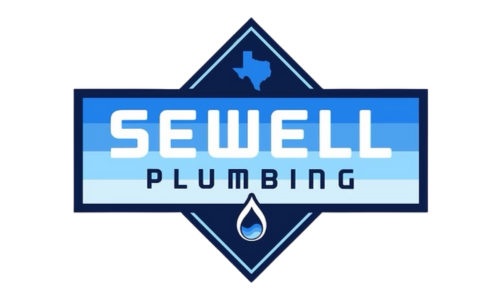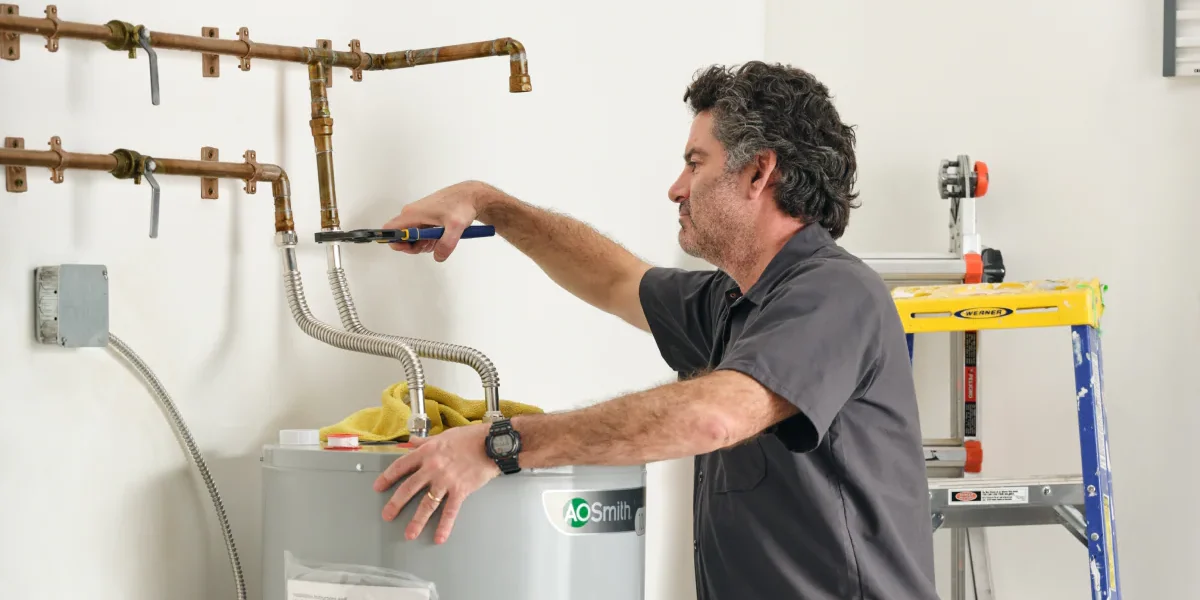When it comes to ensuring a steady supply of hot water in your home, water heater installation is a crucial task. Whether you’re replacing an old unit or installing a new system, understanding the process, choosing the right type of heater, and ensuring proper installation is vital for optimal performance and safety. This comprehensive guide will walk you through everything you need to know about water heater installation.
Understanding Water Heater Installation
What is Water Heater Installation?
Water heater installation involves setting up a device that heats water for various household uses, such as bathing, cleaning, and cooking. There are different types of water heaters available, including tankless, storage, hybrid, and solar models. Each type offers unique benefits and is suited for different applications.
Importance of Professional Installation
Professional water heater installation ensures that the unit operates safely and efficiently. Improper installation can lead to safety hazards, such as gas leaks or electrical issues, and can void the manufacturer’s warranty. Professional installers are knowledgeable about local codes and regulations, ensuring compliance and optimal performance.
Signs You Need a New Water Heater
If your current water heater is more than 10-15 years old, requires frequent repairs, or fails to provide consistent hot water, it may be time for a replacement. High energy bills and visible signs of wear, such as rust and leaks, are also indicators that you need a new water heater.
Types of Water Heaters
Tankless Water Heaters
Tankless water heaters, also known as on-demand heaters, heat water only when needed. This type eliminates the need for a storage tank, saving space and energy. Benefits include continuous hot water supply and energy efficiency, but the initial installation cost can be higher compared to traditional tank heaters.
Storage Tank Water Heaters
Storage tank water heaters are the most common type, featuring a large tank that stores hot water. They are relatively affordable and easy to install. However, they can run out of hot water during peak usage times and have higher energy consumption due to standby heat loss.
Hybrid Water Heaters
Hybrid water heaters combine heat pump technology with traditional heating elements. They are highly energy-efficient, extracting heat from the air to heat the water. While more expensive upfront, they offer significant savings on energy bills over time and are environmentally friendly.
Choosing the Right Water Heater
Assessing Your Hot Water Needs
Determining your household’s hot water needs is the first step in choosing the right water heater. Consider the number of people in your home, usage patterns, and peak hot water demand. A larger family or higher demand may require a larger tank or a more powerful tankless unit.
Energy Efficiency Considerations
Energy efficiency is a crucial factor in selecting a water heater. Look for models with high Energy Factor (EF) ratings, indicating better efficiency. Energy-efficient water heaters reduce utility bills and minimize environmental impact. Comparing the long-term savings of different models helps make an informed decision.
Budget and Cost Analysis
Budget constraints play a significant role in water heater selection. While tankless and hybrid models offer long-term savings, their initial costs are higher. Evaluate the upfront costs against potential savings over the unit’s lifespan. Financing options and comparing brands and models help find the best fit for your budget.
Preparing for Installation
Choosing the Right Location
Selecting the right location for your water heater is essential for optimal performance. Consider space requirements, ventilation needs, and access to water and power sources. Ensure the chosen location complies with local building codes and provides easy access for maintenance and repairs.
Gathering Necessary Tools and Materials
Proper preparation for water heater installation involves gathering essential tools and materials. Common tools include wrenches, pliers, and a pipe cutter. Required materials may include pipes, fittings, and insulation. Safety equipment, such as gloves and goggles, ensures a safe installation process.
Understanding Local Codes and Regulations
Compliance with local codes and regulations is crucial for a safe and legal installation. Obtain necessary permits and schedule inspections as required. Familiarize yourself with building codes related to water heaters, including venting requirements and environmental regulations.
Step-by-Step Installation Guide
Removing the Old Water Heater
Begin the installation process by safely removing the old water heater. Turn off the utilities, including gas, electricity, and water supply. Drain the tank to remove any remaining water, then disconnect the water and gas/electric lines. Carefully remove the old unit, taking necessary precautions to avoid damage and injury.
Installing the New Water Heater
Position the new water heater in the chosen location, ensuring it is level and stable. Connect the water lines, gas, or electric supply, and secure the unit in place. Follow the manufacturer’s instructions for specific installation steps, such as attaching the venting system for gas heaters or wiring for electric models.
Testing and Adjusting the New Water Heater
After installation, check for leaks in the connections and adjust the thermostat to the desired temperature. Fill the tank with water and turn on the power or gas supply. Monitor the unit to ensure proper operation, and make any necessary adjustments to achieve optimal performance.
Common Installation Challenges
Dealing with Limited Space
Installing a water heater in a confined space can be challenging. Consider compact water heater options, such as tankless models, which require less space. Creative solutions, like installing the unit in a crawl space or attic, can also help. Always prioritize safety and accessibility when dealing with limited space.
Managing Ventilation Issues
Proper ventilation is crucial for gas water heaters to expel combustion gases safely. Ensure the venting system is free from obstructions and meets local codes. If necessary, upgrade the ventilation system to accommodate the new heater. Proper ventilation prevents dangerous gas buildup and ensures efficient operation.
Addressing Electrical and Plumbing Complications
Upgrading electrical systems or reconfiguring plumbing lines may be necessary during installation. Hire specialized contractors for complex electrical work, such as upgrading circuits or wiring. Reconfiguring plumbing lines ensures proper water flow and pressure. Addressing these complications ensures a safe and efficient installation.
Post-Installation Maintenance
Initial Maintenance Checks
Perform initial maintenance checks after installation to ensure everything is functioning correctly. Inspect connections and fittings for leaks, test water temperature, and pressure, and ensure proper ventilation. These checks help identify and address any immediate issues, ensuring the unit operates safely and efficiently.
Routine Maintenance Tasks
Regular maintenance is essential for the longevity and efficiency of your water heater. Tasks include flushing the tank (if applicable) to remove sediment, inspecting anode rods to prevent corrosion, and regularly checking for leaks. Following a routine maintenance schedule keeps the heater in optimal condition.
Troubleshooting Common Problems
Even with regular maintenance, issues can arise. Common problems include inconsistent water temperature, unusual noises, and error codes. Troubleshooting involves identifying the cause of the problem and taking appropriate action, such as adjusting the thermostat, cleaning the tank, or contacting a professional for repairs.
Cost Considerations for Water Heater Installation
Material Costs
Material costs for water heater installation include the price of the heater, additional parts, and required materials. Prices vary based on the quality and brand of the water heater. Comparing prices and considering long-term durability helps in selecting cost-effective materials without compromising quality.
Labor Costs
Labor costs depend on whether you hire a professional or attempt a DIY installation. Professional installation ensures proper setup and compliance with local codes but comes with additional costs. DIY installation can save money but requires adequate skills and tools. Obtaining multiple quotes from contractors helps find affordable labor options.
Long-Term Savings
Investing in an energy-efficient water heater offers long-term savings on utility bills. High-efficiency models reduce energy consumption and maintenance costs. Proper installation and regular maintenance extend the unit’s lifespan, maximizing the return on investment. Consider long-term savings when evaluating installation costs.
Finding a Reliable Installer
Researching Installation Professionals
Finding a reliable installer involves thorough research. Look for qualified professionals through recommendations, online reviews, and industry directories. Check their credentials, experience, and specialization in water heater installation. Reliable installers often have a track record of successful projects and satisfied customers.
Questions to Ask Potential Installers
When interviewing potential installers, ask about their experience with specific heater types, detailed quotes, and estimated timelines. Inquire about warranties and service guarantees to ensure long-term support. Clear communication and understanding of the project scope help in making an informed decision.
Finalizing the Installation Contract
Finalizing the installation contract involves reviewing all details, including costs, timelines, and warranties. Ensure both parties understand the scope of work and agree on payment terms. A detailed written contract prevents misunderstandings and ensures a smooth installation process.
Frequently Asked Questions (FAQs)
1. How long does the water heater installation take?
The installation process typically takes 2-3 hours, depending on the complexity and type of water heater.
2. Can I install a water heater myself?
DIY installation is possible but requires knowledge and skills in plumbing and electrical work. Hiring a professional is recommended for safety and compliance.
3. How much does water heater installation cost?
Costs vary based on the type of water heater and installation complexity. On average, expect to pay between $500 and $1,500.
4. What size water heater do I need?
The size depends on your household’s hot water needs. A professional can help determine the appropriate size based on usage patterns.
5. How often should I maintain my water heater?
Regular maintenance should be performed annually, including flushing the tank and inspecting components.
6. Are tankless water heaters better than storage tank heaters?
Tankless water heaters offer energy efficiency and continuous hot water but have higher upfront costs. Storage tank heaters are more affordable but less efficient.
7. What is the lifespan of a water heater?
The average lifespan of a water heater is 8-12 years, depending on the type and maintenance.
8. Do I need a permit to install a water heater?
Many areas require permits and inspections for water heater installation. Check local codes and regulations.
9. How can I improve my water heater’s efficiency?
Regular maintenance, insulating the tank, and setting the thermostat to 120°F can improve efficiency.
10. What are the benefits of professional installation?
Professional installation ensures safety, compliance with local codes, and optimal performance of the water heater.
Conclusion
Water heater installation is a critical process that ensures a reliable supply of hot water in your home. Choosing the right type of heater, preparing adequately, and following proper installation steps are essential for optimal performance and safety. Regular maintenance and professional support further enhance the unit’s efficiency and lifespan.
Prepare thoroughly for installation by choosing the right location, gathering necessary tools, and understanding local codes. Consider energy-efficient models for long-term savings and environmental benefits. Schedule regular maintenance checks to keep the water heater in top condition.



